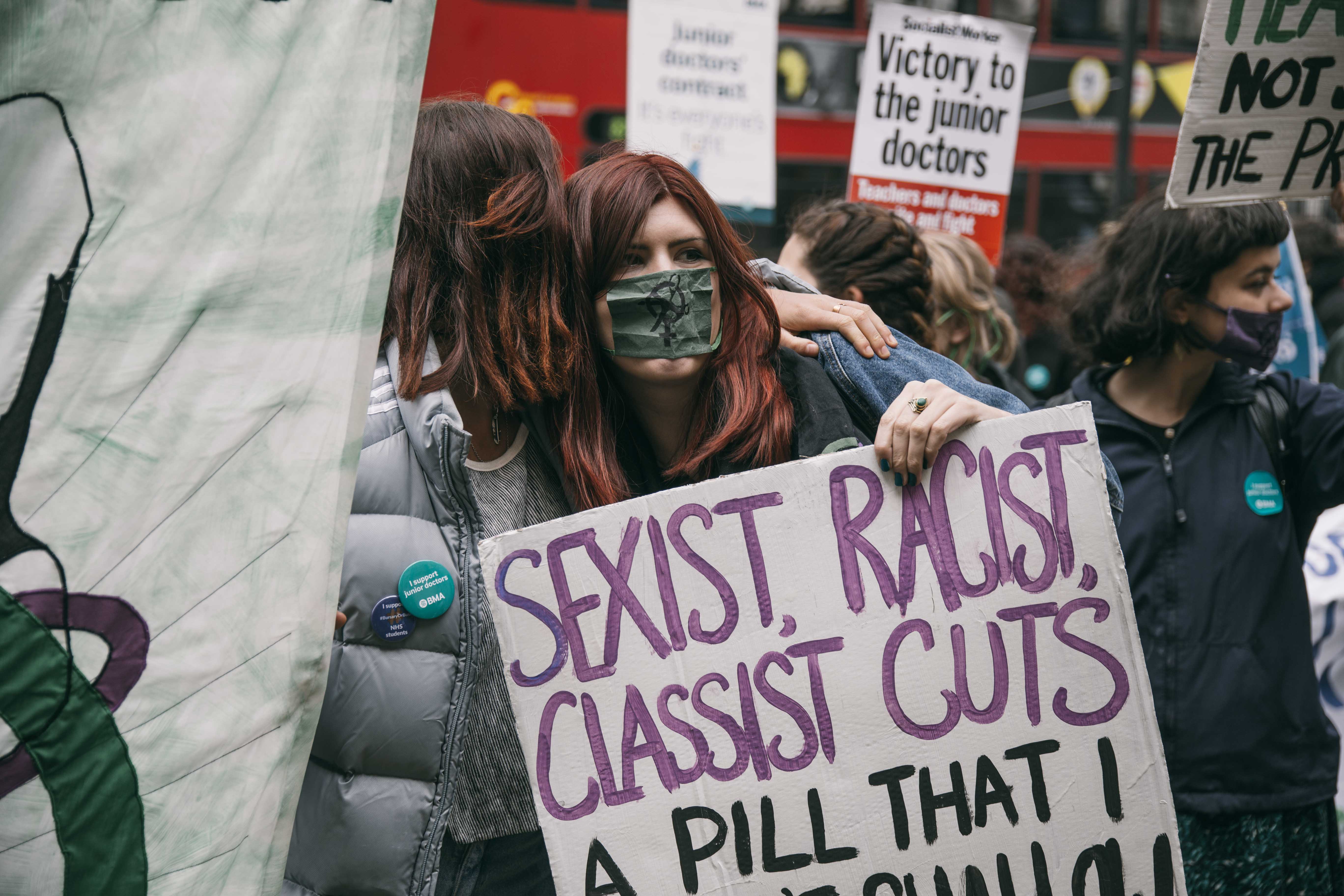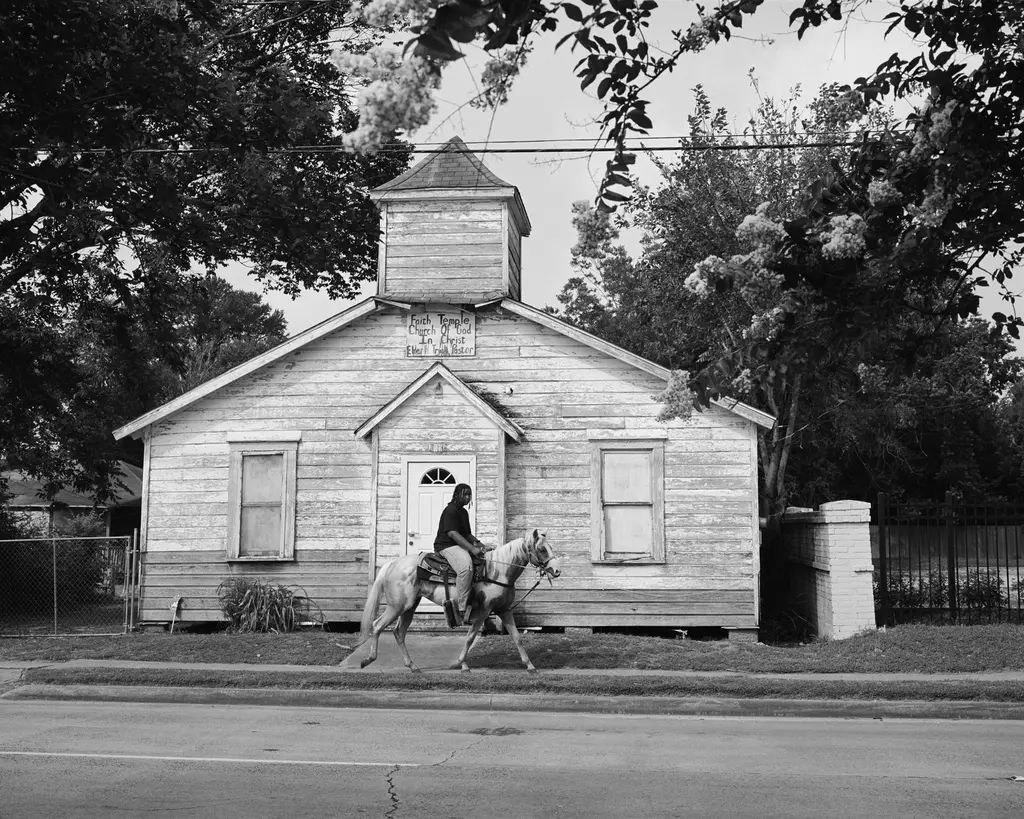Student nurses held a die-in to protest the killing of the UK's health service
- Text by Michael Segalov
- Photography by Theo McInnes

With junior doctors in the UK out on strike today, student nurses too have been making their voices heard. The government has recently announced changes to the funding and support that trainee nurses will be entitled to as they go through their studies – a policy that nurses, unions and plenty of others argue will make the profession less accessible, and create a less safe environment across the British healthcare system.
 Under the current system, student nurses are entitled to a bursary while they’re studying, and their tuition fees are paid for by the National Health Service (NHS). The proposed changes would mean anyone wishing to become a nurse would be forced to pay tuition fees, and take out repayable loans too. The bursary would also be scrapped. As it stands nursing is one of the most open and accessible professions in the country, and campaigners understandably fear that removing the financial supports currently in place would see this jeopardised.
Under the current system, student nurses are entitled to a bursary while they’re studying, and their tuition fees are paid for by the National Health Service (NHS). The proposed changes would mean anyone wishing to become a nurse would be forced to pay tuition fees, and take out repayable loans too. The bursary would also be scrapped. As it stands nursing is one of the most open and accessible professions in the country, and campaigners understandably fear that removing the financial supports currently in place would see this jeopardised.
What’s unique to NHS students is that courses are divided 50/50 between lectures and clinical practice, and their term times are a lot longer than more “traditional” degrees. This means that over the two or three years a trainee is studying for their nursing degree, they’ll spend 2,300 hours in a clinical placement, working. Shifts are often long (7.30am-8pm) and may be over the weekend, bank holidays or during the night. Unlike most students, finding part-time work as a student nurse is pretty much impossible.
It makes sense therefore that people spending so much time working for the NHS – and caring for patients – might not expect to be lumbered with a lifetime of debt. Student nurses argue this isn’t just an attack on their support while studying, it’s also a pay cut. By moving to a loan system the government has effectively given future registered nurses a £900/year salary reduction. According to these guys, it’s hard to imagine how nurses, midwives and other healthcare professionals will afford to stay in the profession they chose.

Anthony Johnson
“If it’s left to this government, we won’t be able to have our NHS,” student nurse Anthony Johnson told Huck. “Our parents, our family, our friends, our grandparents – everyone has paid for the NHS for the last 68 years. If people want to keep the NHS, if they want it be there when they need treatment in health and sickness, as a universal healthcare system, then they need to fight for it now.”

Kiah Hann
It wasn’t just nurses at the protest, patients came down in the rain to show their support. “This fight is not about money, it’s about patient safety”, said Kiah Hann, who has a connective tissue disorder effecting her collagen. “As someone with preexisting medical conditions, I would not be able to get medical insurance for anything related to my medical conditions – I’m pretty much uninsurable. If the NHS is dismantaled, as the govenrment are trying to do, I wouldn’t be able to live.”
Enjoyed this article? Like Huck on Facebook or follow us on Twitter.
Latest on Huck

Meet the trans-led hairdressers providing London with gender-affirming trims
Open Out — Since being founded in 2011, the Hoxton salon has become a crucial space the city’s LGBTQ+ community. Hannah Bentley caught up with co-founder Greygory Vass to hear about its growth, breaking down barbering binaries, and the recent Supreme Court ruling.
Written by: Hannah Bentley

Gazan amputees secure Para-Cycling World Championships qualification
Gaza Sunbirds — Alaa al-Dali and Mohamed Asfour earned Palestine’s first-ever top-20 finish at the Para-Cycling World Cup in Belgium over the weekend.
Written by: Isaac Muk

New documentary revisits the radical history of UK free rave culture
Free Party: A Folk History — Directed by Aaron Trinder, it features first-hand stories from key crews including DiY, Spiral Tribe, Bedlam and Circus Warp, with public streaming available from May 30.
Written by: Isaac Muk

Rahim Fortune’s dreamlike vision of the Black American South
Reflections — In the Texas native’s debut solo show, he weaves familial history and documentary photography to challenge the region’s visual tropes.
Written by: Miss Rosen

Why Katy Perry’s space flight was one giant flop for mankind
Galactic girlbossing — In a widely-panned, 11-minute trip to the edge of the earth’s atmosphere, the ‘Women’s World’ singer joined an all-female space crew in an expensive vanity advert for Jeff Bezos’ Blue Origin. Newsletter columnist Emma Garland explains its apocalypse indicating signs.
Written by: Emma Garland

Katie Goh: “I want people to engage with the politics of oranges”
Foreign Fruit — In her new book, the Edinburgh-based writer traces her personal history through the citrus fruit’s global spread, from a village in China to Californian groves. Angela Hui caught up with her to find out more.
Written by: Katie Goh

